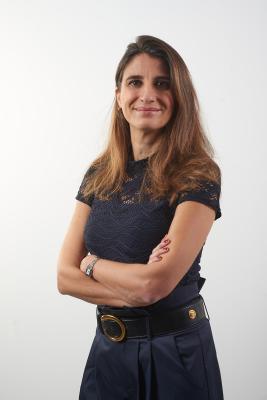
The threat from climate change is clear and so too is its impact on human health. It is imperative that we all work together to minimise our impact on the planet and play our part in tackling one of the world’s toughest challenges yet.
That’s why we welcome the leadership provided by the medical community in the recently published ‘Reducing the environmental footprint of gastrointestinal endoscopy’ , authored by the European Society of Gastrointestinal Endoscopy (ESGE) and European Society of Gastroenterology and Endoscopy Nurses and Associated (ESGENA).
It’s inspiring to read that ESGE-ESGENA’s ambition is for GI endoscopy to become a net-zero greenhouse gas emissions practice by 2050. We too are establishing ambitious science-based targets that will set us on a path toward net-zero carbon emissions across our entire value chain by 2050. In fact, I’m proud to say that we were one of the first medical device manufacturers to pledge to achieve carbon neutrality by 2030 in all our manufacturing and key distribution sites, a target that we are well on our way to achieving.
It is also encouraging to see that there are many focus areas where industry can play a key role and where at Boston Scientific we have initiatives in place or underway:
Avoiding repeat procedures
ESGE-ESGENA suggest performing most elective endoscopic procedures on an outpatient basis to reduce the environmental impact associated with overnight hospital stays and encourage techniques such as cholangioscopy, a procedure to directly visualise the bile duct or gallbladder.
For example, the Boston Scientific SpyGlass™ DS System has been shown to reduce the number of repeat Endoscopic retrograde cholangiopancreatographies (ERCP) by up to 79 percent1,2,3, which could help healthcare systems significantly reduce resources, waste per patient and greenhouse gas (GHG) emissions associated with hospital staysfor this type of procedure.
Enabling virtual training
Virtual training and online educational modalities can reduce the environmental impact of GI endoscopy according to ESGE-ESGENA. Today, Boston Scientific has an extensive suite of online training and education offerings for healthcare professionals. Our innovative smart glasses technology allows remote visual and audio connections between two physicians to facilitate live procedural training and support on demand. Our ePreceptor platform provides hospitals with technology to broadcast live endoscopy cases to viewers worldwide. And our online education platform, EDUCARE offers an extensive range of free training courses and educational content.
Considering single-use devices
We are also aligned with ESGE-ESGENA that the use of single use endoscopes should be reserved for highly selected patients and considered on a case-by-case basis. Segmenting patients by infection risk allows endoscopists to make more informed decisions about the risk benefit ratio of single-use duodenoscope technology like EXALTTM Model D.
We recognise concerns around the environmental impact of single-use GI endoscopes and accessories. In 2020, we began collaborating with a team of 15 multidisciplinary experts at a leading waste management company in Germany on a recycling pilot project that aims to reduce incineration and landfill volumes.
Globally, we strive to improve the sustainability of our packaging and labelling. In 2021, we removed 219 metric tons of packaging from the waste stream. We have made measurable progress with initiatives centred on packaging, labeling and device recycling and are focused on further reducing environmental impacts of our technologies throughout the entire product life cycle.
Funding sustainable research
Encouraging and funding research into green and sustainable endoscopy is a priority for ESGE-ESGENA and we are delighted to be supporting Professor Siwan Thomas-Gibson, Professor Bu'Hussain Hayee and Dr Robin Baddeley with their sustainability research. Collaborating with Imperial College London, St Mark’s Hospital and the Centre for Sustainable Healthcare they are currently undertaking a study which will provide an accurate quantification of the environmental impact of endoscopy and highlight parts of the process that contribute most to the negative impacts.
These are but a few examples of how companies like Boston Scientific can play a role in supporting the sector’s ambition to tackle climate change. It’s clear a lot of work has already been done and a lot of work still to do, to minimise the environmental impact of GI endoscopy.
Boston Scientific for one can be counted on to play its part.
Astrid Monteau
Vice President Endoscopy EMEA, Boston Scientific
Published 17 October 2022
For more information on our expanding efforts to protect the environment please see our 2021 performance report here
1. Boston Scientific. Data on File. SpyGlass DS sustainable journey. June 2022
2. Sustainable Care Pathways Guidance: Inpatient bed day module published 2015, Surgical Procedure Module Published 2015 Sustainable Care Pathways Guidance – Sustainable Healthcare Coalition: (https://shcoalition.org/sustainable-care-pathways-guidance/).
3. Sustainable Care Pathways Guidance: Patient travel module published 2015, Surgical Procedure Module Published 2015 Sustainable Care Pathways Guidance – Sustainable Healthcare Coalition: (https://shcoalition.org/sustainable-care-pathways-guidance/)